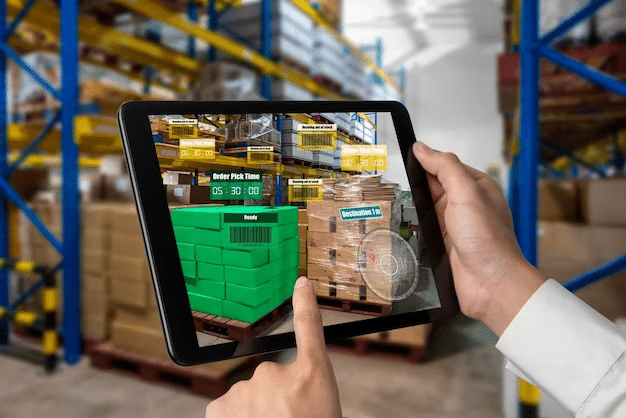
Achieving retail compliance
The Importance of Retail Compliance: Ensuring Success and Avoiding Pitfalls
Retail compliance is a crucial aspect of running a successful retail business. It encompasses a range of policies, procedures, and practices that ensure adherence to laws, regulations, and industry standards. In this guide, we will explore the scope of retail compliance, the reasons why it is important, and the key elements that make up a strong compliance program to ensure your retail and brand success.
T-ROC Global helps companies get back on track when it comes to complying with all the applicable retail laws and standards. With T-ROC, you can rest assured that your retail practices are in compliance.
Why is Retail Compliance Important?
Ensuring retail compliance is crucial for a successful retail operation. It allows businesses to maintain customer trust and avoid potential legal issues. Moreover, regulatory compliance laws also play a vital role in defining the working conditions for employees. An integral part of retail operations is ensuring the safety and well-being of employees. An Employee Certificate that validates the worker’s skills and safety training is often a part of regulatory compliance.
Key Elements of Retail Compliance
The key elements of retail compliance can be broadly categorized under Laws and Regulations, Safety and Security, and Consumer Protection.
Laws and Regulations
Laws and regulations make up a significant portion of any retail compliance center. This involves ensuring that the business abides by all applicable labor laws, environmental regulations, and vendor compliance. Compliance with these laws is monitored and regulated by various government entities.
Regulatory compliance tends to be complex, but resources like a routing guide can help retailers navigate the legalities effectively.
Safety and Security
Retail enterprises need to adhere to safety and security regulations. This refers to the safety of customers and employees, as well as the security of data and proprietary information. For instance, businesses should conduct regular safety drills and implement data security measures.
Consumer Protection
Consumer protection is another crucial element of retail compliance. Retailers must ensure that they are not selling faulty or dangerous products and are providing accurate and clear information to their customers about their products.
Retail compliance is not just about adhering to regulations—it also contributes positively to the experience of everyone involved in the retail operations ecosystem. From consumers to vendors, employees, and part logistics – each element works together to create a safe, fair, and superior retail environment.
Benefits of Retail Compliance
The world of party logistics is complex and challenging, requiring a strong understanding of regulatory compliance laws. Beyond simply adhering to laws, companies find that retail compliance presents a host of benefits.
Enhanced Customer Trust
Retail sustainability is not just a trend but is increasingly becoming a commitment customers actively seek. By demonstrating regulatory compliance, companies can build strong trust with their customers. This translates to increased customer loyalty and improved brand image.
Avoiding Legal Consequences
Failure to comply with retail operations regulations can lead to serious legal consequences. By staying compliant, businesses prevent fines, litigation, and potential shutdowns. Moreover, retail compliance ensures companies align with labor laws that protect employee rights – both ethically correct and excellent for the company’s reputation.
Improved Operational Efficiency
Retail compliance often involves streamlining and refining business processes. From the creation of a routing guide to the implementation of sustainable packaging practices, these operations can result in efficiency boosts for the business. It also highlights the importance of vendor compliance, reducing interruptions to the supply chain.
Challenges and Common Issues in Retail Compliance
Retail compliance is not without its challenges. Businesses often encounter difficulties in various areas, such as understanding and managing regulatory compliance laws.
Non-compliance Risks and Consequences
Not complying with retail operation regulations can have costly repercussions. Beyond potential fines, businesses risk damaging their reputation and losing customer trust. For instance, non-compliance with environmental compliance measures can bring negative publicity, driving customers away to seek more sustainable options.
The Complexity of Compliance Management
Managing retail compliance is no easy task. It involves understanding complex laws and regulations, keeping up with changes, and ensuring all departments are compliant. Often, businesses find it beneficial to have an employee certificate program for education in areas like labor laws, environmental compliance, and safety codes.
Lack of Employee Awareness and Training
An essential part of retail compliance is employee training. Without a solid understanding of regulatory compliance laws and their importance, employees may unintentionally contribute to non-adherence. Investing in training programs that offer an employee certificate upon completion is one way to ensure staff are equipped with the knowledge they need for compliance.
Best Practices for Retail Compliance
Navigating the complex landscape of retail compliance can be challenging, with labor laws, environmental compliance, and retail sustainability to consider. However, adopting best practices can make this process more manageable. We recommend an approach that includes and is not limited to:
1. Developing a Comprehensive Compliance Plan
A comprehensive compliance plan begins with thoroughly understanding regulatory compliance laws specific to your industry. These laws may pertain to employee rights, the supply chain, and sustainable packaging. An employee certificate program can educate staff on these laws, promoting awareness and compliance within the organization.
2. Regular Audits and Assessments
Regular audits and assessments are a must to ensure ongoing compliance. These audits can be conducted by the Retail Compliance Center or by internal party logistics teams. They cover all aspects of retail operations, from vendor compliance to supply chain management.
3. Ongoing Monitoring and Communication
After audits, corrective actions should be taken regarding any non-compliance issues. There should be ongoing monitoring to ensure these corrective measures are working. Clear communication routes like a routing guide should be utilized to keep all stakeholders informed.
Retail Compliance Tools and Technologies
Nowadays, technology is simplifying the process of regulatory compliance in retail. Tools like compliance management systems, artificial intelligence, automation, and data security solutions are invaluable assets. These include:
1. Compliance Management Systems
Compliance Management Systems (CMS) help track, manage, and ensure compliance with a range of obligations. It can automate the collection of compliance data, create custom reports, and issue reminders for compliance deadlines.
2. Artificial Intelligence and Automation
AI and automation can also play a crucial role in retail compliance. They can automate compliance checks, identify risks, and provide suggestions for improvement. Their analysis and predictions can help retail operations stay one step ahead in compliance.
3. Data Security and Privacy Solutions
Consumer privacy laws are becoming stricter, making data security and privacy solutions essential for retail compliance. These solutions include encryption tools, secure data storage systems, and measures to prevent data breaches.
How Retail Compliance is Changing: Future Trends
The rapidly changing landscape of retail operations has brought about radical alterations in retail compliance. Let’s explore 3 key trends shaping the future of retail compliance.
1. Evolving Laws and Regulations
One of the chief drivers of changes in retail compliance is evolving labor and regulatory compliance laws. These laws are necessitating a rethinking of internal processes to maintain vendor compliance and are putting pressure on the Retail Compliance Center to stay updated with constant changes.
For instance, stringent laws are being enacted to protect consumer data in the era of digitization, compelling businesses to establish robust data handling systems. Regulatory compliance like this not only bolsters consumer trust but also helps avoid financial penalties and reputational damage.
2. Increasing Emphasis on Sustainability
The global crusade toward retail sustainability has sparked a radical shift in the industry. The modern consumer strongly favors brands emphasizing environmental compliance, which has had a ripple effect on all aspects of retail operations, most notably in the supply chain and packaging.
Supply chain sustainability is about managing resources to meet present needs without compromising future generations’ ability. Sustainable packaging, on the other hand, aims to limit environmental impact by minimizing waste, using recyclable materials, and following efficient manufacturing practices.
3. Rise of E-commerce and its Impact on Compliance
The digital revolution has given birth to e-commerce. This evolution in retail comes with its own set of compliance challenges, primarily in the areas of consumer privacy, digital transactions, return policies, and third-party logistics.
Retailers are being forced to innovate and adapt to ensure compliance, and this is where resources like a routing guide come in handy. They offer detailed steps for vendors and distributors on handling online orders, from packaging to shipping, adhering to compliance laws.
An employee certificate in e-commerce compliance can be an extremely valuable asset in the digital age. This type of certification demonstrates an understanding of the prevalent compliance norms for online retail and assists retailers in cutting down risks associated with non-compliance.









